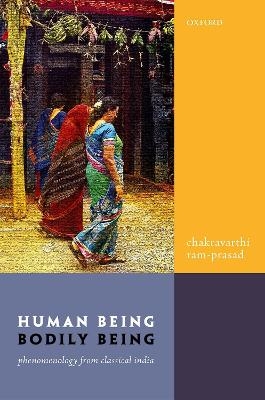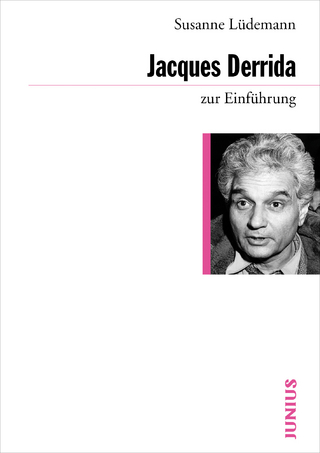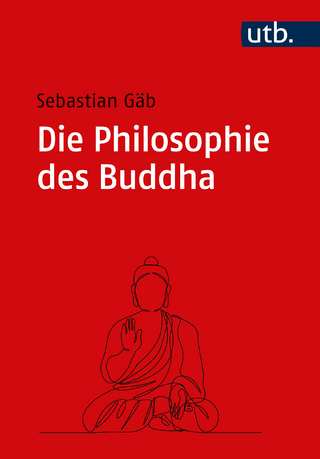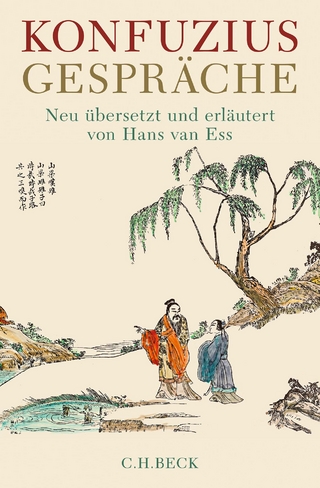
Human Being, Bodily Being
Phenomenology from Classical India
Seiten
2018
Oxford University Press (Verlag)
978-0-19-882362-9 (ISBN)
Oxford University Press (Verlag)
978-0-19-882362-9 (ISBN)
Chakravarthi Ram-Prasad offers illuminating new perspectives on contemporary phenomenological theories of body and subjectivity, based on studies of diverse classical Indian texts. He argues for a 'phenomenological ecology' of bodily subjectivity in health, gender, contemplation, and lovemaking.
Chakravarthi Ram-Prasad offers illuminating new perspectives on contemporary phenomenological theories of body and subjectivity, based on studies of classical Indian texts that deal with bodily subjectivity. Examining four texts from different genres - a medical handbook, epic dialogue, a manual of Buddhist practice, and erotic poetry - he argues for a 'phenomenological ecology' of bodily subjectivity in health, gender, contemplation, and lovemaking. An ecology is a continuous and dynamic system of interrelationships between elements, in which the salience accorded to some type of relationship clarifies how the elements it relates are to be identified. The paradigm of ecological phenomenology obviates the need to choose between apparently incompatible perspectives of the human. The delineation of body is arrived at by working back phenomenologically from the world of experience, with the acknowledgement that the point of arrival - a conception of what counts as bodiliness - is dependent upon the exact motivation for attending to experience, the areas of experience attended to, and the expressive tools available to the phenomenologist. Ecological phenomenology is pluralistic, yet integrates the ways experience is attended to and studied, permitting apparently inconsistent intuitions about bodiliness to be explored in novel ways. Rather than seeing particular framings of our experience as in tension with each other, we should see each such framing as playing its own role according to the local descriptive and analytic concern of a text.
Chakravarthi Ram-Prasad offers illuminating new perspectives on contemporary phenomenological theories of body and subjectivity, based on studies of classical Indian texts that deal with bodily subjectivity. Examining four texts from different genres - a medical handbook, epic dialogue, a manual of Buddhist practice, and erotic poetry - he argues for a 'phenomenological ecology' of bodily subjectivity in health, gender, contemplation, and lovemaking. An ecology is a continuous and dynamic system of interrelationships between elements, in which the salience accorded to some type of relationship clarifies how the elements it relates are to be identified. The paradigm of ecological phenomenology obviates the need to choose between apparently incompatible perspectives of the human. The delineation of body is arrived at by working back phenomenologically from the world of experience, with the acknowledgement that the point of arrival - a conception of what counts as bodiliness - is dependent upon the exact motivation for attending to experience, the areas of experience attended to, and the expressive tools available to the phenomenologist. Ecological phenomenology is pluralistic, yet integrates the ways experience is attended to and studied, permitting apparently inconsistent intuitions about bodiliness to be explored in novel ways. Rather than seeing particular framings of our experience as in tension with each other, we should see each such framing as playing its own role according to the local descriptive and analytic concern of a text.
Chakravarthi Ram-Prasad is Distinguished Professor of Comparative Religion and Philosophy at Lancaster University, and a Fellow of the British Academy. He is the author of six books and some fifty papers. Divine Self, Human Self (Bloomsbury) won the Society for Hindu-Christian Studies Best Book Award 2011-15.
Introduction: Situating Ecological Phenomenology
1: The Body in Illness and Health
2: The Gendered Body
3: The Body in Contemplation
4: The Body in Love
| Erscheinungsdatum | 04.10.2018 |
|---|---|
| Verlagsort | Oxford |
| Sprache | englisch |
| Maße | 163 x 236 mm |
| Gewicht | 486 g |
| Themenwelt | Geisteswissenschaften ► Philosophie ► Östliche Philosophie |
| Geisteswissenschaften ► Philosophie ► Philosophie der Neuzeit | |
| Geisteswissenschaften ► Psychologie ► Psychoanalyse / Tiefenpsychologie | |
| Geisteswissenschaften ► Religion / Theologie ► Buddhismus | |
| Geisteswissenschaften ► Religion / Theologie ► Hinduismus | |
| ISBN-10 | 0-19-882362-2 / 0198823622 |
| ISBN-13 | 978-0-19-882362-9 / 9780198823629 |
| Zustand | Neuware |
| Informationen gemäß Produktsicherheitsverordnung (GPSR) | |
| Haben Sie eine Frage zum Produkt? |
Mehr entdecken
aus dem Bereich
aus dem Bereich


